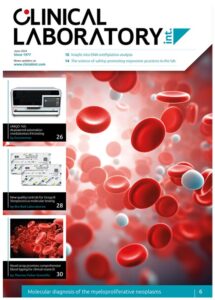Transgene strengthen global IP protection for its novel Invir.IO oncolytic viruses encoding ICIs
Transgene, a biotech company that designs and develops virus-based immunotherapies for the treatment of cancer, has received a patent from the Japan Patent Office for their oncolytic virus (OV) backbone VVcopTK-RR- that encodes one or more immune checkpoint inhibitors (ICIs).
This authorization in Japan follows similar patent grants obtained in several other key geographies including the US and Europe, providing broad protection of this technology in the major pharmaceutical markets globally. These patents protect Transgene’s VVcopTK-RR- backbone encoding one or several ICIs until 2035.
VVcopTK-RR- is a large capacity Vaccinia virus Copenhagen strain genetically modified with the double deletion TK-RR- which restricts the viral replication to tumour cells only. This proprietary backbone is the basis of Transgene’s Invir.IO platform. Candidates based on this viral design aim to stimulate an immune response locally in the tumour and to optimize the safety profile of the virus.
The new Japanese patent provides further IP by protecting this proprietary oncolytic virus when it encodes one or more ICIs, a type of immunotherapy already approved and used in several cancer therapies.
Transgene has already obtained patent grants for this new technology in the US, Europe, Australia, Hong Kong, Israel, and Russia. In addition, applications are pending in Canada and in China.
Hedi Ben Brahim, Chairman and CEO of Transgene, commented: “This new patent allowance in Japan is significant for Transgene’s Invir.IO platform as it further highlights our innovation-based strategy and strengthens the company’s IP protection in another key geography. By protecting the vectorization of ICIs in our VVcopTK-RR- oncolytic viruses, we are extending our Invir.IO IP beyond the original viral backbone protection. As a result, we are in a position to protect oncolytic viruses coding for ICIs generated from our Invir.IO platform, securing the value of candidates such as BT-001, which is currently being evaluated in a Phase I/IIa trial, and several preclinical developments.”



